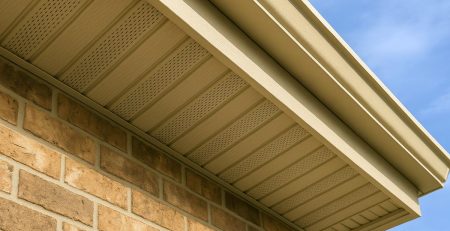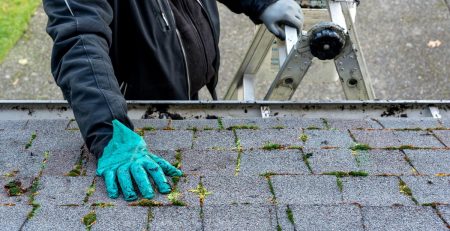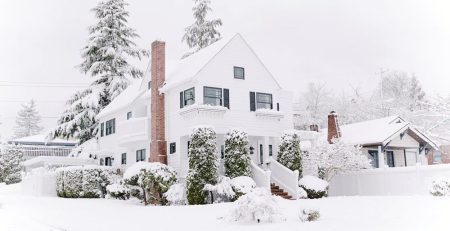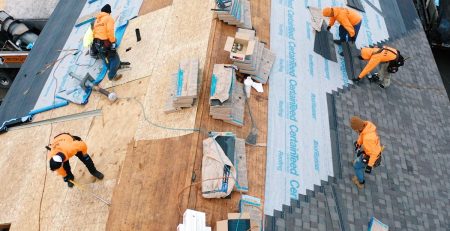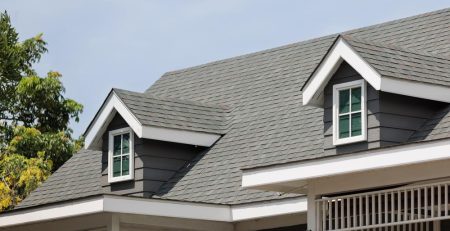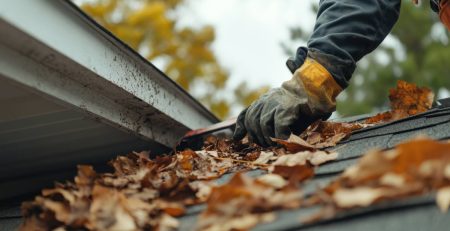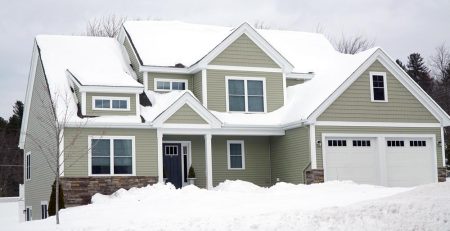Environmental Benefits of Asphalt Shingles
When most homeowners think of asphalt shingles, they often focus on affordability, durability, and curb appeal. But in today’s environmentally conscious world, it’s important to understand that modern asphalt shingles offer more than just aesthetic and functional benefits—they can also be an eco-friendly roofing option.
Thanks to advances in manufacturing, recycling programs, and energy-efficient innovations, asphalt shingles have come a long way in minimizing their environmental footprint. For West Michigan homeowners looking to reduce their impact on the planet while protecting their home, asphalt shingles present a smart and sustainable solution.
In this article, we’ll explore the many ways modern asphalt shingles support green living, from recyclability and energy efficiency to improved manufacturing practices.
1. Recyclability: Reducing Waste in Landfills
One of the biggest criticisms of traditional asphalt shingles was that they often ended up in landfills after replacement. In the U.S. alone, it’s estimated that nearly 12 million tons of old shingles are removed from roofs each year. However, thanks to industry-wide sustainability efforts, that narrative is changing.
Asphalt Shingle Recycling Programs
Many asphalt shingles can now be recycled into products like:
- Asphalt pavement for roads and driveways
- Temporary road surfaces in construction zones
- Hot mix asphalt used in commercial paving
These recycling programs divert tons of waste from landfills while creating cost-effective and durable materials for infrastructure projects.
How Homeowners Can Help:
- Ask your roofing contractor if they participate in a shingle recycling program.
- Confirm that your old shingles will be taken to a recycling facility instead of a landfill.
- Choose a contractor who partners with green disposal companies.
In West Michigan, more contractors are joining local recycling initiatives, making it easier than ever to ensure your roof replacement is environmentally responsible.
2. Cool Roofing Technology: Reflecting Heat for Energy Savings
Energy efficiency is another key area where modern asphalt shingles shine. Many manufacturers now offer “cool roofing” options that are specially designed to reflect more sunlight and absorb less heat than traditional shingles.
How It Works:
Cool roofing shingles use specially coated granules that reflect infrared radiation, reducing the heat transferred into the home through the roof. This means:
- Lower attic temperatures
- Reduced demand on
- Lower household energy bills
Energy Star Certified Shingles
Some asphalt shingles meet ENERGY STAR® requirements for solar reflectance and emissivity. Installing ENERGY STAR-rated roofing products can lower roof surface temperatures by up to 50°F.
This is particularly beneficial for homes in warmer climates, but even in West Michigan, where summers are increasingly warm, cool roofs contribute to year-round energy savings.
Additional Benefits:
- Enhanced indoor comfort
- Reduced urban heat island effect in residential neighborhoods
“Modern asphalt shingles offer a wide range of environmental benefits that make them a smart, sustainable choice for today’s homeowners.”
3. Sustainable Manufacturing Processes
Asphalt shingle manufacturers have made significant strides in making their production processes more environmentally friendly. Leading companies like Owens Corning, GAF, and CertainTeed have implemented sustainability initiatives that include:
Examples of Green Manufacturing:
- Recycled Content: Some shingles are made with recycled post-consumer materials.
- Waste Reduction: Manufacturing waste is minimized and often repurposed.
- Lower Emissions: New technologies reduce greenhouse gas emissions during production.
- Water Management: Closed-loop systems help recycle water used in the manufacturing process.
When choosing a roofing product, look for manufacturers who publish environmental product declarations (EPDs) or participate in sustainability certifications.
4. Longer Lifespan = Fewer Replacements
Today’s architectural asphalt shingles are engineered to last 25 to 30 years or more, depending on installation and maintenance. A longer lifespan means fewer roof replacements over the lifetime of a home, which ultimately reduces resource consumption and waste.
High-quality asphalt shingles offer:
- Greater resistance to wind, hail, and UV rays
- Algae-resistant and moisture-resistant coatings
- Thicker, more durable construction than traditional 3-tab shingles
By reducing the frequency of roof replacements, homeowners also reduce the energy, fuel, and material costs associated with repeat projects.
5. Supports Local Economy and Reduces Transportation Emissions
Many asphalt shingle manufacturers operate plants throughout the United States, including the Midwest. Purchasing roofing materials from regional producers reduces the transportation distance, which in turn:
- Cuts down on fossil fuel consumption
- Lowers carbon emissions from freight
- Supports local economies and job creation
West Michigan homeowners can feel good knowing their roofing materials are often produced nearby, reducing the environmental impact of long-distance shipping.
6. Compatibility with Solar Panels
For homeowners exploring renewable energy options, asphalt shingles are a highly compatible roofing surface for solar panel installations. Their flat, secure surface allows for easy attachment of solar mounting systems, and their widespread use means that most solar contractors are experienced in working with them.
By pairing a durable asphalt roof with solar energy, you can significantly lower your home’s carbon footprint and take full advantage of eco-friendly living.
7. Roof Ventilation Integration for Energy Efficiency
A well-ventilated roof system not only prolongs the life of your shingles, but also improves your home’s overall energy efficiency. Proper ventilation reduces heat buildup in the attic during summer and moisture accumulation during winter, both of which can strain your HVAC system and lead to unnecessary energy use.
Many modern asphalt roofing systems are designed to work seamlessly with ridge vents and soffit ventilation, enhancing their performance and environmental value.
8. Lightweight Material = Less Structural Demand
Unlike slate or tile, asphalt shingles are lightweight and do not require structural reinforcement during installation. This saves additional construction materials (like lumber and fasteners) and reduces the environmental cost of reinforcing your home to handle heavier loads.
FAQs About Eco-Friendly Asphalt Shingles
Yes. When properly disposed of through a recycling program, asphalt shingles can be reused in paving projects and other applications. Not all contractors offer recycling, so it’s important to ask.
While Michigan isn’t as hot as southern states, cool roof shingles can still help reduce attic heat in the summer, leading to improved energy efficiency and comfort.
No. Cool roof technology is integrated into the shingle granules and does not affect the overall appearance. You can still choose from a wide variety of colors and styles.
Look for companies that publish Environmental Product Declarations (EPDs), participate in third-party sustainability programs, or have ENERGY STAR-rated products.
West Michigan Roofing Company
Modern asphalt shingles offer a wide range of environmental benefits that make them a smart, sustainable choice for today’s homeowners. From recyclability and cool roof options to green manufacturing and energy savings, they check a lot of boxes for those looking to reduce their ecological impact.
If you’re planning a roof replacement in West Michigan and want an option that’s both durable and eco-conscious, asphalt shingles are a proven solution. At Legend Roofing, we work with leading shingle manufacturers who prioritize sustainability, and we proudly participate in environmentally responsible roofing practices.
Give us a call at (616) 600-1130 to learn more about eco-friendly roofing options and get a free consultation on your next project.




